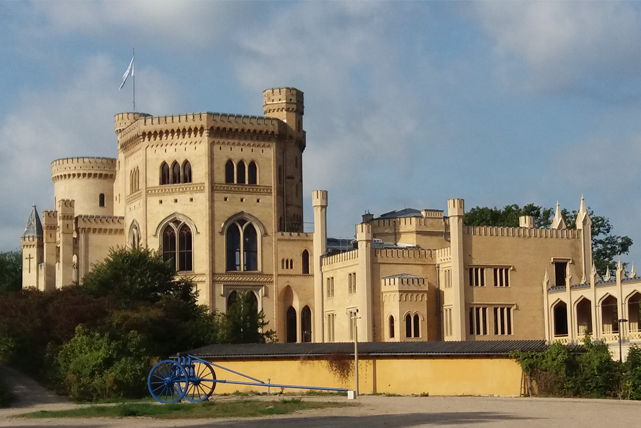Urban Resilience to Extreme Weather Events - Typologies and Transfer of Adaptation Strategies in Medium-Sized Cities and Towns (ExTrass-V)
Research department: Politics and Planning
Project Leader within IRS: PD Dr. Wolfgang Haupt
Project Team: Prof. Dr. Kristine Kern
Funding Organization: Federal Ministry for Education and Research (BMBF)
Duration: 01/2022 - 12/2023
ExTrass wants to better equip medium-sized cities and towns in Germany against heat and heavy rain. To achieve this, the project examines the factors that hinder or enable urban climate adaptation and identifies examples of successful measures. One focus of the project will take place in three case study cities - Potsdam, Remscheid and Würzburg – which will test greening initiatives, pursue climate-adapted urban planning, extend datasets related to the urban climate, communicate climate risks to residents, and improve emergency planning. The project will also facilitate networking and knowledge exchange so that cities can learn from each other.
The project will develop, test and evaluate a web-based resilience tool, based on findings from the initial research and development phase. This will enable municipalities to go through a five-stage process of strengthening climate resilience on their own, and will be available to cities and districts free of charge.
IRS will contribute to the project by expanding and updating the findings generated during the initial research and development phase (if necessary, here is the link again), feeding this knowledge into the resilience tool and disseminating the tool amongst the target group of municipalities. The primary goals of the IRS are:
- mapping the transfer organisations, channels and mechanisms for climate mitigation and climate adaptation in Germany,
- reviewing the political science and human geography literature on the transfer of policy innovations between cities,
- creating a Germany-wide monitoring approach for climate mitigation and climate adaptation by updating and expanding a ranking system developed during the initial ExTrass phase,
- identifying new climate policy city types to complement the classification into pioneers, imitators and laggards,
- and carrying out 12 to 15 path analyses to identify the climate policy development paths of German medium-sized cities and towns.




